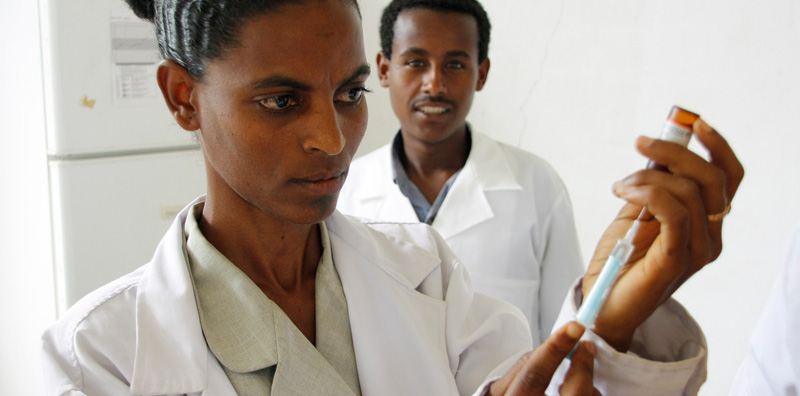
08:23 31st March 2017 | Dangerous Disease
Meningitis Outbreak Dangerous Disease Deafness Epilepsy Cognitive Deficits Disease Control Inflamed Brain Inflamed Spinal Cord Accurate Diagnosis Vaccination Antibiotics Abuja Centre WHO NPHCDA UNICEF NFELTP eHEALTH Africa NSDC
There is currently a meningitis outbreak in Nigeria which is life threatening. This dangerous disease can also cause deafness, epilepsy or cognitive deficits in the long term if it’s not caught and treated.
A CNN article reports that across 15 states nearly 2 000 suspected cases have been recorded and 109 have been treated since the outbreak began in February. According to Nigeria's Center for Disease Control, the meningitis outbreak has killed more than 300 people in Nigeria.
The most affected age group is 5- to 14-year-olds and they are responsible for about half of reported cases. Both sexes are almost equally affected.
Here are the symptoms you should watch out for:
The term meningitis is used when the protective layers of the brain and spinal cord, the meninges, are acutely inflamed.
The infection could be bacterial or viral. Because it’s located so close to the brain and spine the disease is often life threatening. A speedy and accurate diagnosis is therefore vital, but vaccination is even more important.
Vaccination can be effective when it comes to preventing meningitis and some types of meningitis can be treated with antibiotics. Other ways to prevent this deadly disease from spreading:
According to Isaac Adewole, Nigeria’s Minister of Health, the current disease that’s now prevalent in Nigeria is a new strain (stereotype C), possibly from a neighbouring country, which requires a different type of vaccine. However, up to 1.3 million vaccines have now been acquired.
The Abuja Centre for Diseases Control has stated that this present outbreak is the worst case in Nigeria since 2009 when 156 lost their lives.
The following agencies, organisations and programmes are providing support to this outbreak:
IF YOU ARE EXPERIENCING ANY SYMPTOMS, PLEASE VISIT YOUR CLOSEST GOVERNMENT HOSPITAL AS PER THE LATEST REGULATIONS PAST BY THE NIGERIAN GOVERNMENT ON WEDNESDAY 5 APRIL 2017.IF YOU KNOW ANYONE EXPERIENCING SYMPTOMS, DIRECT THEM TO THE GOVERNMENT HOSPTIALS.
Sources: Ventures Africa, CNN & WHO
Search by condition, treatment or keyword and conveniently browse our informative articles
Book an appointment online or search for a clinic close to you.
Book an Appointment